Causal networks as a tool to assess environmental risk of CO2 leakage
Linda Stalker A * , Karsten Michael A , Charles Jenkins B , Kate Holland C , Luk Peeters C , Matt Myers A , Andrew Ross A and Nicola Clarke DA
B
C
D
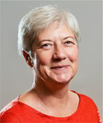
Linda Stalker – Education/qualifications: BSc Hons Applied Geology (Strathclyde University, Scotland, 1990), PhD Petroleum Geochemistry (University of Newcastle-upon-Tyne, UK, 1994), followed by academic and industry roles before joining CSIRO in 2000. She is a Senior Principal Research Scientist. https://people-my.csiro.au/s/l/linda-stalker. |
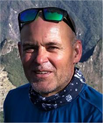
Karsten Michael – Education/qualifications: MSc Hydrogeology (Technical University Berlin, 1996), PhD Hydrogeology (University of Alberta, 2002), joining CSIRO in 2007. He is Principal Research Scientist in the CSIRO Energy business unit. https://people-my.csiro.au/m/k/karsten-michael. |
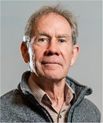
Charles Jenkins – Education/qualifications: BSc(Hons) (Witwatersrand, 1977), PhD (Cambridge, 1981), followed by a range of industry and academic roles before working with CO2CRC and joining CSIRO leading activities in Monitoring and Verification. Charles is a Senior Principal Research Scientist and has won numerous awards. https://people-my.csiro.au/j/c/charles-jenkins. |
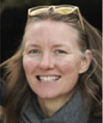
Kate Holland – Education/qualifications: BSc Hons (University of Adelaide, 2003), PhD in Biology and Earth Sciences (Flinders University of South Australia, 2003), joining CSIRO in 2004. She leads the Groundwater Management Group. https://people-my.csiro.au/h/k/kate-holland. |
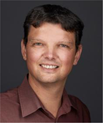
Luk Peeters – Education/qualifications: BSc Geology (2001), MSc Geology (2003) and PhD Hydrogeology (Katholieke Universiteit Leuven, Belgium 2010), and immediately joined CSIRO. Team Leader in Risk to Groundwater Resources Team. https://people-my.csiro.au/p/l/luk-peeters. |
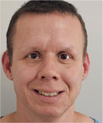
Matt Myers – Education/qualifications: BS Chemical Engineering (California Institute of Technology, 2003), PhD Organic Chemistry and Materials Science (Columbia University, New York, 2008) and joined CSIRO. He is a Principal Research Scientist in the Energy business unit. https://people-my.csiro.au/m/m/matt-myers. |
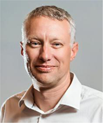
Andrew Ross – Education/qualifications: BSc Marine Biology and Oceanography (University of North Wales, 1998), MSc Petroleum Geoscience (2000) and PhD in Petroleum Geochemistry (University of Newcastle upon Tyne, UK, 2004), followed by a range of roles since joining CSIRO in 2004. Currently group leader of the Geochemistry, Geosystems and Geodata teams within the Energy Resources program. https://people-my.csiro.au/r/a/andrew-ross. |

Nicola (Nikki) Clarke – Education/qualifications: Geology from Edinburgh University, a PhD from Cambridge University and a Diploma in Management Studies from the University of Gloucestershire. After experience in the oil and gas, third and public sectors, Nikki is now the Senior Geologist at IEAGHG and chairs the IEAGHG Risk Management Network. https://ieaghg.org/meet-the-team/. |
Abstract
The role of carbon capture and storage (CCS) as a quantitatively significant emissions reduction tool for Australia and globally is acknowledged by many. One perceived challenge that CCS faces relates to the potential for adverse environmental impacts due to the risk of leakage. CSIRO has completed a study, commissioned by the International Energy Agency’s Greenhouse Gas R&D Programme (IEAGHG), using causal networks a framework allowing identification of steps which provide insight into cause-and-effect relationships. The network describes a series of drivers, activities and stressors that could be at play, generically speaking, during geological carbon storage together with processes that may arise if leakage were to occur where endpoints or impacts are described. An assessment of the risk, its likelihood and consequences are explained and supported by a range of peer-reviewed resources to illustrate actual impacts. Case studies, analogues and pilot tests have been instrumental in informing risks and consequences. The report demonstrates that while leakage (i.e. via compromised well bores or unforeseen geological conditions) could be material in rare circumstances, environmental impacts via pathways from stressors to endpoints (e.g. air quality, marine biodiversity) are low. If appropriate geological appraisal is conducted, the geological leakage risk remains low, and mitigation steps can be used to manage remaining risks and impacts of CCS.
Keywords: causal networks, CCS, environmental impacts, human health, leakage, marine monitoring, mitigation, offshore, onshore, risks.
 Linda Stalker – Education/qualifications: BSc Hons Applied Geology (Strathclyde University, Scotland, 1990), PhD Petroleum Geochemistry (University of Newcastle-upon-Tyne, UK, 1994), followed by academic and industry roles before joining CSIRO in 2000. She is a Senior Principal Research Scientist. https://people-my.csiro.au/s/l/linda-stalker. |
 Karsten Michael – Education/qualifications: MSc Hydrogeology (Technical University Berlin, 1996), PhD Hydrogeology (University of Alberta, 2002), joining CSIRO in 2007. He is Principal Research Scientist in the CSIRO Energy business unit. https://people-my.csiro.au/m/k/karsten-michael. |
 Charles Jenkins – Education/qualifications: BSc(Hons) (Witwatersrand, 1977), PhD (Cambridge, 1981), followed by a range of industry and academic roles before working with CO2CRC and joining CSIRO leading activities in Monitoring and Verification. Charles is a Senior Principal Research Scientist and has won numerous awards. https://people-my.csiro.au/j/c/charles-jenkins. |
 Kate Holland – Education/qualifications: BSc Hons (University of Adelaide, 2003), PhD in Biology and Earth Sciences (Flinders University of South Australia, 2003), joining CSIRO in 2004. She leads the Groundwater Management Group. https://people-my.csiro.au/h/k/kate-holland. |
 Luk Peeters – Education/qualifications: BSc Geology (2001), MSc Geology (2003) and PhD Hydrogeology (Katholieke Universiteit Leuven, Belgium 2010), and immediately joined CSIRO. Team Leader in Risk to Groundwater Resources Team. https://people-my.csiro.au/p/l/luk-peeters. |
 Matt Myers – Education/qualifications: BS Chemical Engineering (California Institute of Technology, 2003), PhD Organic Chemistry and Materials Science (Columbia University, New York, 2008) and joined CSIRO. He is a Principal Research Scientist in the Energy business unit. https://people-my.csiro.au/m/m/matt-myers. |
 Andrew Ross – Education/qualifications: BSc Marine Biology and Oceanography (University of North Wales, 1998), MSc Petroleum Geoscience (2000) and PhD in Petroleum Geochemistry (University of Newcastle upon Tyne, UK, 2004), followed by a range of roles since joining CSIRO in 2004. Currently group leader of the Geochemistry, Geosystems and Geodata teams within the Energy Resources program. https://people-my.csiro.au/r/a/andrew-ross. |
 Nicola (Nikki) Clarke – Education/qualifications: Geology from Edinburgh University, a PhD from Cambridge University and a Diploma in Management Studies from the University of Gloucestershire. After experience in the oil and gas, third and public sectors, Nikki is now the Senior Geologist at IEAGHG and chairs the IEAGHG Risk Management Network. https://ieaghg.org/meet-the-team/. |


